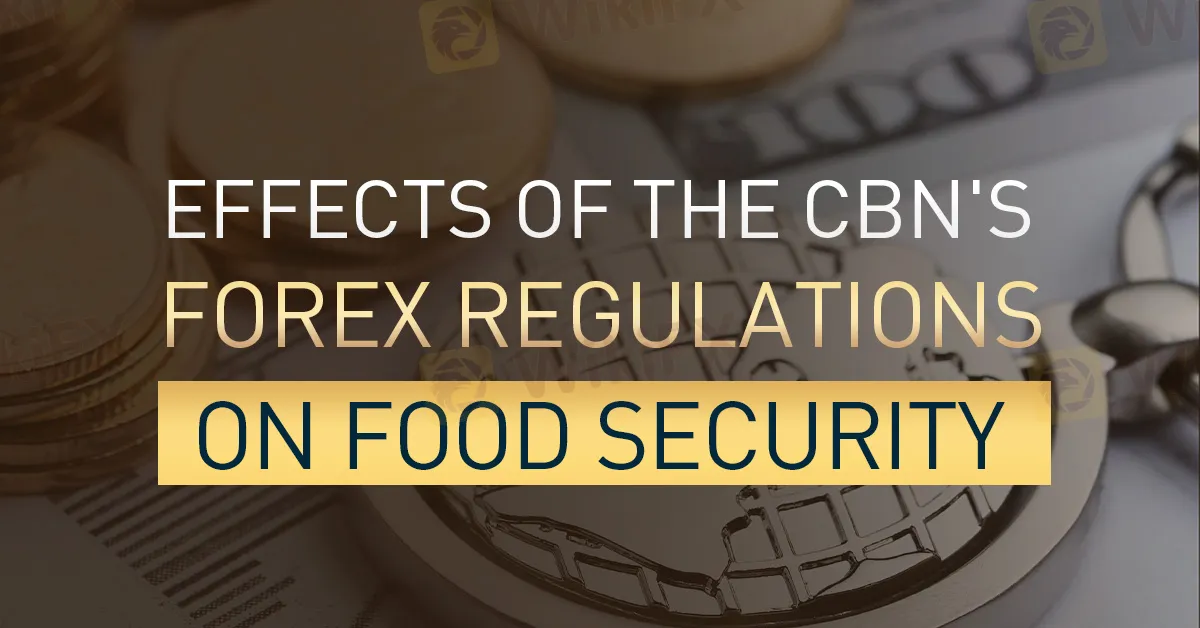Abstract:Regarding the effect of the CBN policy on the nation's level of food security, some analysts have differing opinions.

Regarding the effect of the CBN policy on the nation's level of food security, some analysts have differing opinions.
The Central Bank of Nigeria (CBN) declared last Thursday that it had lifted the ban on 43 commodities that had been barred from acquiring foreign exchange (FX) from the authorized foreign exchange windows in 2015.
A statement from the CBN's director of corporate communications, Isa AbdulMumin, read: “Importers of all the 43 items previously prohibited by the 2015 Circular referenced TED/FEM/FPC/GEN/01/010 and its addenda are now permitted to purchase foreign currency in the Nigerian Foreign Exchange Market.”
About eight years after limiting individuals who deal in the items from getting forex at the authorized FX window on June 23, 2015, the central bank made a new decision to lift the restrictions on these items.
The policy's goal was to boost local manufacture of certain goods while easing pressure on the demand for dollars for importation.
Rice, cement, margarine, palm kernel, palm oil goods, vegetable oils, meat and processed meat products, chicken, tomatoes and tomato paste, soap and cosmetics, and clothing are just a few of the things that are impacted.
Private airplanes and jets, Indian incense, canned fish in sauce, roofing sheets, wheelbarrows, head pans, metal boxes and containers, enamelware, steel drums and pipes, wire mesh, steel nails, and wood particle boards and panels are some further products.
Security and razor wire, wood particle and fiber boards and panels, wooden doors, furniture, toothpicks, glass/glassware, culinary utensils, tableware, ceramic and vitrified tiles, textiles, wooden fabrics, plastic/rubber goods, polypropylene granules, and cellophane wrappers were also impacted.
The central bank then added fertilizer and maize/corn to the list of products while working to implement its backward integration strategy on essential items.
The measure forced importers to obtain foreign exchange on the black market for their transactions, increasing pressure and demand for FX at the unlicensed window.
About ten commodities related to food are among those that are prohibited, according to a survey of the unbanned items.
INFLUENCES FOOD SECURITY
The cost of the aforementioned list of food items, including rice, maize, and poultry products (chicken, eggs), which are important staple foods for Nigerians, has increased dramatically by over 100% during the past ten years.
Many people's purchasing power has been negatively impacted by the trend in rising costs for these essentials and other goods, making it challenging for many households in the nation to afford daily meals.
The average price of chicken feed in Nigeria increased by at least 168% over the course of the previous three years, according to a survey from last year. This increase highlights the severity of Nigeria's recent food inflation.
Nigeria's food inflation rate increased to 30.64 percent on a year-over-year basis in September, according to the National Bureau of Statistics' (NBS) most recent data on inflation. The number suggests a rise of 7.30% points in comparison to the rate observed in September 2022 (23.34%).
In the midst of inflationary pressure and the lingering consequences of climate change, the country's food availability, accessibility, and affordability are all suffering as a result of this trend.
President Bola Tinubu announced an emergency “State of Emergency” on the nation's food insecurity in July amid soaring food costs.
The action is seen as a part of a determined effort to increase agricultural production and lower the high prices of Nigeria's main staple foods.
The development, according to the government, is in keeping with its short-, medium-, and long-term goals for resolving the problems with food affordability and accessibility in the nation.
While the CBN's decision to withdraw the ban on the 43 products is a significant step in ending the nation's forex crisis, experts have expressed varied opinions about how the removal will affect the country's level of food security.
EXPERTS DISCUSS
Dairy Hills Limited Chief Executive Officer, Kelvin Emmanuel, reacted favorably to the CBN's decision to lift the FX restrictions on the 43 goods, calling the move a “good development”.
He said that the limitations provided an unfair advantage and increased demand on the underground market, which resulted in a premium that is now 32.5 percent.
Mr. Emmanuel voiced worry that the government's campaign to promote backward integration will not be affected by the easing of the 43-item restriction.
Apart from permitting people who deal in the items to access FX within the authorized window, he claimed they remain subject to a customs prohibition.
In an interview, he stated, “I believe the Central Bank needs to clear all outstanding forwards in Capital & Dividend Remittances, Form A, and Commercial Letters of Credit in order to truly bring the FX rates back to the band of real effective exchange rates (REER).”
He said the CBN must also endeavor to balance the external reserve obligations for currency swaps to banks and securities financing to the central bank made with external asset managers without the National Assembly's consent.
Nigeria needs to accelerate backward integration for import substitution for business manufacturing in order to lessen the shocks for durable goods to FX, according to Mr. Emmanuel. This is a crucial step in slowing down inflation and modifying the inflation to interest yield curve for sustainable credit.
As for the CBN decision, Azeez Salawu, the creator of Community Action for Food Security (CAFS AFRICA), called it a “complex move” with both potential advantages and risks.
He explained that on the one hand, by making it simpler for importers to access foreign cash, it might assist raise the availability of certain food goods on the local market, which might then help stabilize prices and address short-term food shortages.
Mr. Salawu pointed out that there are worries that the action would stifle domestic food production.










